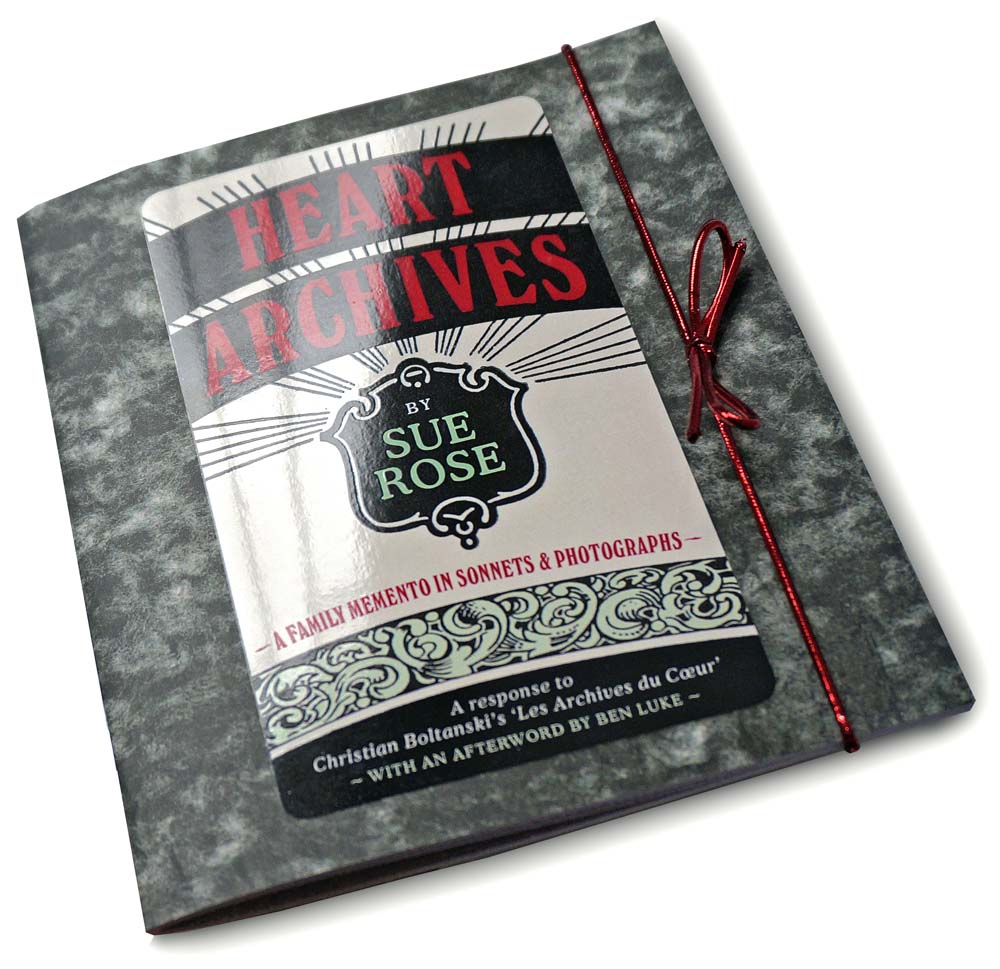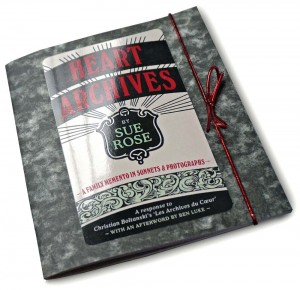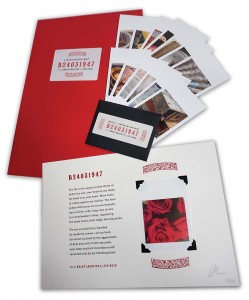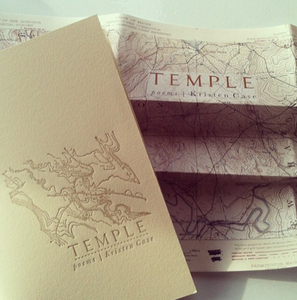Heart Archives by Sue Rose
-Reviewed by Lavinia Singer-
The vessel for my remains
will be those who carry part of me
in their histories.– from ‘D25072049’
A vessel too will be this exquisitely crafted “family momento in a book” – the latest from small but mighty Hercules Editions, which specialises in collaborations between contemporary writers and artists.
As is helpfully explained in the foreword, Rose is responding to the eerie initiative of French artist Christian Boltanski, who has been recording visitors’ heartbeats since 2008 for his permanent sound installation Les Archives du Cœur on the island of Teshima, Japan. But here, we have not heartbeats, but fourteen ‘poems of the heart’: sonnets, paired with various tipped-in images taken by Rose on her iPhone 4S. All tied together with a red metallic bow and signed by the author, there’s a satisfying scrapbook feel as you hold it in your hands.
Boltanski’s exhibition turns the intimately private into something powerfully public, where the audience can participate in the immersive experience. What do Rose’s “poems in praise of family and friends” offer for a general reader? Why should we read her “personal archaeology”?
Rose masters the art of non-specificity. There are no names or dates in the poems, and even the titles are codes of letters and numbers, as in dispassionate cataloguing systems. Family details, like secrets, emerge in hints and whispers – a sister in hospital, lovers in the sun – while the images are less illustrations than mum companions to the poems. In Rose’s voice, the everyday inhabits a ghostly other-world of symbol: candle-flames may decorate a birthday cake, mark the anniversary of a mother’s death but they also burn as a universal symbol of continuing life: “keeping some light alive, despite our fear”. Great themes of love, death, childlessness, immortality, hang over each, like “stars raining / dead light” – a sublime metaphor, in the equally sublime poem ‘G25042013’.
And, above all, the theme of memorial: how to be remembered. This book is inspiring – everyone should make such an album! – articulating what makes a life important, and thereby preserving it. For in the face of all the absence, loss, forgetting, “but still the heart doth need a language” (Coleridge).







